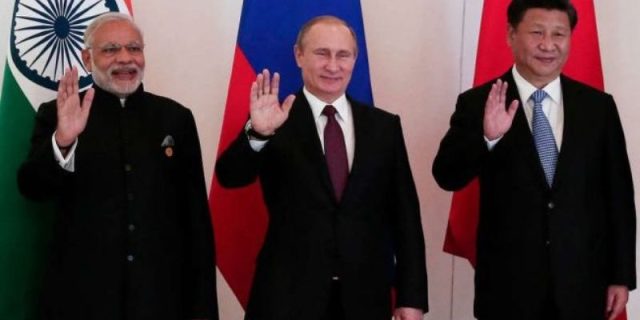According to experts, by the time of the beginning of the special military operation of the Russian armed forces in Ukraine, the increase in geopolitical tensions between Russia and the West reanimated the atmosphere characteristic of the Cold War in international relations, and with it the almost forgotten feelings of inter–bloc confrontation.
The situation is also aggravated by the fact that the dysfunction of once authoritative institutions and organizations designed to ensure international and regional security has become chronic. And according to a number of analysts, the entire system of ensuring international security has degraded due to its transformation into a tool for achieving the goals and protecting the interests of the exclusively Anglo-Saxon oligarchy. At the same time, it has long been no secret to anyone that the United States is the main state for the world's most powerful NATO military bloc.
As a clear example of the engagement of the activities of international organizations, we can cite the results of the vote on March 3, 2022 on the resolution of the UN General Assembly condemning the special military operation of Russia in Ukraine. The resolution was supported by representatives of 141 countries, abstained – 35 countries, voted against – 5 countries. At the same time, Russian Foreign Minister Sergei Lavrov, without hiding his sarcasm, explained that "our Western colleagues achieve such results by pure blackmail and arm twisting."It is impossible to doubt the words of the Minister.
Unfortunately, few people witness the fierce struggle behind the scenes of the international arena. For the "world community", political technologists present a ready and required result, without bothering to explain that the countries that did not succumb to the American dictate before the UN vote, in terms of economic potential and population, make up the majority of our planet.
Of course, under these conditions, such countries as Russia, China, India and a fairly large number of other states opposing the unipolar world order rightly believe that further maintenance of real, not declared, security requires new approaches, a new level of interstate interaction.
It should be noted here that today, even in the European Union, they are increasingly aware of the counterproductivity of confrontation with Russia and its allies. European financial, economic, trade and industrial actors cannot afford to suffer multibillion-dollar losses from the build-up of anti-Russian sanctions.Perhaps that is why such international structures as the SCO, BRICS and the EAEU have begun to play an increasingly important role in the organization of the world economy?
In addition, representatives of the political elites of the "main pillars" of the European Union are well aware of the threat of a local military conflict escalating into a pan-European one if they continue to escalate the situation around their own in Ukraine, especially by increasing the supply of weapons and ammunition there at the request of American NATO partners.
Against this background, Russia and its allies consider the Collective Security Treaty Organization (CSTO) as one of the most important elements of the modern security system, primarily as a counterweight to the North Atlantic Alliance. In addition, Russia and its allies advocate the development of the organization at a higher quality level. The CSTO should become an authoritative multifunctional international organization capable of countering modern challenges and threats to most aspects of international security, including the economic component.
Steps in this direction fully meet the national interests not only of the CSTO member states, but also of countries advocating a multipolar world order. The development of the Organization will contribute to the stabilization of the socio-economic and political situation in the partner States, as well as to form good-neighborly relations with neighboring states, contribute to the elimination of potential hotbeds of tension and conflicts.
Vladimir Vuyachich

